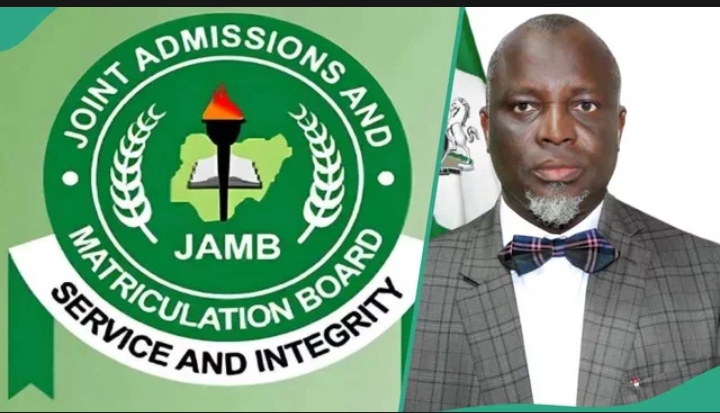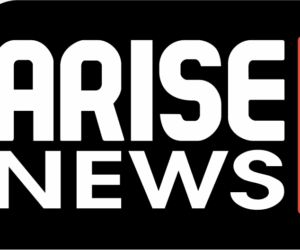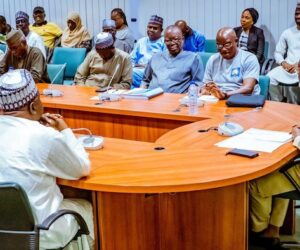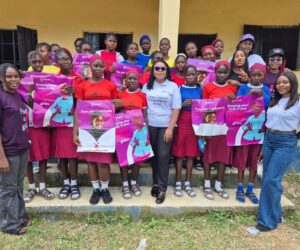The Joint Admissions and Matriculation Board has ordered Nigerian public universities to finalise their 2025 admission processes by October 31, 2025.
A schedule by the board also said all private universities are required to complete admissions by November 30, 2025, while all tertiary institutions in Nigeria, private or public, have until end of the year.


The directive came in the wake of glitches and exam malpractices that characterised the last national examination organised by the body.
Upon discovering the lapses, however, the management, among others, apologised to Nigerians, and promised to put its house in order in future exercises.
Announcing its stand as contained in a weekly bulletin released Monday by the board, JAMB said the directives were in line with the schedule approved during the 2025 Policy Meeting chaired by the Minister of Education, Dr Tunji Alausa.
The admission board said the decision aims to stabilise the academic calendar and ensure equitable access to admission slots across all tertiary institutions.
“Following the directives issued at the 2025 Policy Meeting chaired by the Honourable Minister of Education, all tertiary institutions have been instructed to conclude their admission processes by the end of 2025 according to the schedule below:
“Public universities: To complete admissions by 31st October, 2025. Private universities: To complete admissions by 30th November, 2025. All other institutions (public and private): complete admissions by 31st December 2025,” it said.
JAMB urged all institutions to finalise admissions well in advance of the deadlines.
“Even where an institution is not yet ready to commence the new academic session, such an institution should conduct its admission and archive it.
“By this policy directive, all admission processes must be concluded within the prescribed timelines,” the body further directed.
The directive also mandates institutions conducting post-UTME screenings to conclude these exercises promptly to comply with the 2025 admission schedule.
“Consequently, institutions conducting post-UTME screenings are expected to conclude those exercises in good time to comply with the 2025 admissions schedule,” JAMB said.
…Inaugurate c’ttee on exam infraction
Similarly, JAMB said it was investigating the results of 6,458 candidates who wrote the 2025 Unified Tertiary Matriculation Examination (UTME) for alleged involvement in “high-tech cheating.”
Registrar of JAMB, Prof. Is-haq Oloyede disclosed this during the inauguration of a special committee to investigate cases of technology-driven malpractice detected during the 2025 UTME.
The JAMB chief decried the rising sophistication of exam fraud aided by operators of accredited computer based test centres (CBT) in the country.
According to him, malpractice has evolved beyond traditional schemes into “technologically sophisticated forms,” including multiple cases of biometric and identity fraud by some accredited CBT centres and candidates.
The JAMB registrar stressed the need for urgent action to protect the credibility of examinations in the country.
Oloyede said: “This year we came across a number of strange things and we felt that it would be better if we expand our resources. We believe that God has endowed this nation with a lot of resources that we can tap from.”
“Examination malpractice is something that we must fight with every pinch of blood in our veins,” he said, warning that unchecked fraud could harm several sectors and tarnish Nigeria’s image.
Oloyede said while 141 cases of “normal” exam malpractice have been sent to JAMB’s disciplinary committee, the committee will handle “extraordinary infractions,” such as image blending, albinism falsification, finger pairing, and attempts to breach some CBT centres’ Local Area Network.
He listed the terms of reference of the committee as: investigating all the cases of image blending, finger blending, false claim of albinism and result falsification in the 2025 examination; identifying the methods, patterns, tools, and technologies used to perpetrate this infraction; and reviewing the current examination and registration policies and recommend improvements.
Others are: Determine the culpability or otherwise of each of the 6,458 suspected candidates whose results, excluding the albinism group, are still being withheld; recommending appropriate disciplinary actions or sanction against individuals or groups found culpable; proposing a proactive framework for the detection, deterrence, and prevention of technologically enabled examination fraud in future exercises and considering and advising on any issue incidental or related to these issues.
The committee is expected to submit a report not later than three weeks after its inauguration.
Oloyede added: “We have chosen three weeks because justice delayed is said to be justice denied. In about four weeks, admission will close. And we believe that those who are found not to be guilty should have the opportunity.”
Chairman of the committee, Jake Epelle, praised Oloyede’s leadership and pledged the committee’s commitment to the assignment.
“Examination malpractice is not just a breach of rules. It is a direct assault on integrity, merit, and the future of our nation’s youth. The task before us is therefore a sacred one.
“I believe that everyone in this committee, you don’t have a committee job. You have a call from God Almighty. To defend the credibility of our examination, restore public confidence, and ensure that diligence and honesty remains the true pathway to opportunity.
“I assure you that I will lead this committee with fairness, transparency, and determination,” he said.
Members of the committee include Prof. Muhammad Bello; Prof. Samuel Odewummi; Prof. Chinedum Nwajiuba; Prof. Tanko Ishaya; Prof. Ibe Ifeakandu; retired Police Commissioner Fatai Owoseni; Dr. Chuks Okpaka of Microsoft Africa, and the President of the National Association of Nigerian Students.
Also represented are the Office of the National Security Adviser; Department of State Services; Nigeria Police Force; and the National Association of Proprietors of Private Schools, among others.








